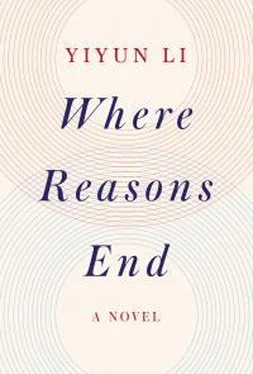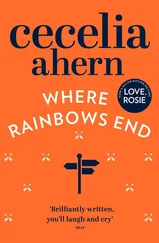I read him a quote from Marianne Moore. “If nothing charms us or sustains us (and we are getting food and fresh air) it is for us to say, ‘If not now, later,’ and not mope.” Often I had gone back to the quote, saying to myself, If not now, later.
I never mope, Nikolai said, if you haven’t noticed.
Of course I have, I said.
His joy and his suffering, neither in minor key, precluded moping. Yet what if, I thought, moping is a bridge to reach Moore’s later?
There is no later, he said. For some people it’s now and now and now and now.
Tell me about it, I thought. It was exactly three months since his death. Seasons have changed. All lives in nature have changed themselves, as ordained by the seasons. It’s later and later and later and later for them, helpless as they are to want to make permanent any kind of now. A dear friend says we only count days and weeks and months with this intensity for two reasons: after a baby’s birth, and after a loved one’s death. Three months feel as long as forever, yet as short as a single moment when it’s now and now and now and now, so I must tell my friend that there is a difference between life and death. A newborn grows by hour, by day, by week. The death of a child does not grow a minute older.
Does this count as moping? Nikolai asked.
What?
Your going over useless thoughts.
Useless according to whom? I snapped.
Sometimes you sound like me, he said. Very un-Mommy-like.
Sometimes you sound like me, I said.
What a terror, he said. No child likes to detect any trace of his parents in himself.
Not even the good things? I asked.
When bad things have to come along, too? he said.
A few times Nikolai had commented that he had got the mathematics and science genes from his father, talent with language and good work ethic from his mother, music and sport and a sense of humor from himself, admiration from his little brother—yet it was so rare that he could look at himself that way. Contentment was never a word in his dictionary.
Sometimes, I said, only sometimes, I do think you have a point in questioning why parents give children lives.
Why do they in any case?
Blind hope, I said, or wishful thinking.
See, you’re moping now.
No, this is not moping. I don’t mope, either, if you haven’t noticed.
Okay, I’ll give you that, he said.
Yet what if moping is the exact thing that is needed for those who don’t mope, I thought. One doesn’t kill oneself while moping.
I would say stick with any virtue or vice that you can’t change, he said. If you’re a migrant bird you can’t be flightless. If you’re a flightless bird you can’t leave New Zealand.
Or Australia? I said.
Any island, he said.
We never did visit Australia together, I said. Remember Rosie?
Rosie had grown up on an Australian farm, and had visited us when she was five. J. was six, and Nikolai was nine. The day she left, walking up the driveway of our old house, she had turned around with tears in her eyes and waved at the boys. Come visit me soon, she had shouted at them. Don’t wait till we’re old.
You can’t go back to every little memory and cry, Mommy.
How do you know I’m crying?
Because Rosie represents the quintessential never-lastingness of good old time.
Quintessential, I said. Do you know it shares a root with Quintus?
Quintus had joined the household when he had been nine weeks old. Nikolai had been the one to name the dog The Fifth in Latin, after the four human beings in the family.
Nikolai did not speak. Did he miss Quintus?
You can’t step into the same river twice, he said.
Sometimes once is hard enough, I said. I admire you for having done that, and you have done more beautifully than many people I know.
Oh Mommy, don’t make it sound like an elegy.
No, it’s not an elegy, I thought. No parent should write a child’s elegy.
Don’t be so sad, he said. Don’t mope.
Can I read you a poem? I said.
If that makes you feel better.
So I read him a poem by Wallace Stevens.
This Solitude of Cataracts
He never felt twice the same about the flecked river,
Which kept flowing and never the same way twice, flowing
Through many places, as if it stood still in one,
Fixed like a lake on which the wild ducks fluttered,
Ruffling its common reflections, thought-like Monadnocks.
There seemed to be an apostrophe that was not spoken.
There was so much that was real that was not real at all.
He wanted to feel the same way over and over.
He wanted the river to go on flowing the same way,
To keep on flowing. He wanted to walk beside it,
Under the buttonwoods, beneath a moon nailed fast.
He wanted his heart to stop beating and his mind to rest
In a permanent realization, without any wild ducks
Or mountains that were not mountains, just to know how it would be,
Just to know how it would feel, released from destruction,
To be a bronze man breathing under archaic lapis,
Without the oscillations of planetary pass-pass,
Breathing his bronzen breath at the azury centre of time.
16
Answers Do Not Fly Around
I’ve gone back to Shakespeare, I said.
I didn’t know you stopped, Nikolai said.
He wouldn’t have known. A little over a year ago, the day after the presidential election, I told him that every morning, I would read Shakespeare’s work before I made breakfast for them, and I would read his plays in chronological order, once, twice, however many rounds allowed by four years. I had stopped the morning after Nikolai died. The last morning we had had—I still remembered the giant volume opened on the dining table when he had come out of his bedroom. I remembered every single word we had exchanged until he exited my car near school.
Every single word? he asked.
Yes.
How can you be certain?
Because there had been eight hours of uncertainty, during which I had re-lived that morning, moment by moment, but this I didn’t say. Remember when we were in Ireland, you chastised me because I ordered the food in the same accent the waitress used? I said. You thought it sounded like I was mocking her?
That’s a non sequitur, Nikolai said. I would believe it if you said you remembered some of the things we said to each other, but everything? Every word?
When I turned ten, I said, I made a resolution to memorize more poems than anyone in my life would have read. I kept the habit until I was in my twenties.
Now we’re in parallel conversations, he said.
What I’m trying to explain is this: Some people live by images, some by sounds. It’s words for me. Words said to me. Words not meant for me but picked up by me in any case. Words in their written form. Words that make sense and words that make nonsense.
So your brain is like a flypaper for words.
Gosh, I wish you could unsay it, I said. Now I’ll always feel a little disturbed by my brain.
LOL, he said.
I did not speak. As far as we were separated, I could still hear him. When he had first begun to adopt Internet slang, for a long time I had thought LOL meant “Lots of Love” and had cherished it when he said that to me. The misunderstanding, once cleared, had given Nikolai and J. a good time laughing at my gormlessness.
Remember the flypapers we saw in the Summer Palace? Nikolai asked.
It was on a smoggy morning a little over a year ago when we had gone to the Summer Palace. The sun had been an orange, metallic disc next to a high-rise when we left the hotel. From there I could retrace the course of the day, of boating and walking and playing word games and counting the flypapers around the lake all the way to a conversation with a cabdriver, who explained to me at length what it must mean for me to live in America and how I must parent my children with their Chinese roots. Too many people ready to offer expertise on things they knew nothing about, I had thought then, like too many cars congesting the traffic.
Читать дальше












